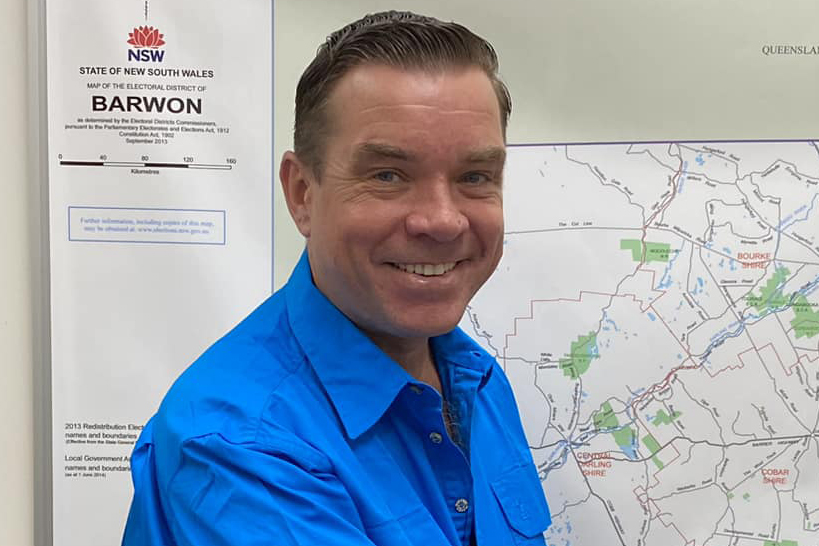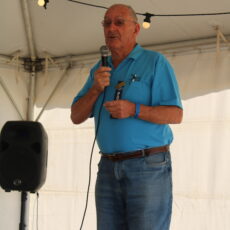We have entered 2023 still reeling from the flood crisis, with Menindee still bracing for a flood peak (as of the time of writing this) of around 10.7 metres. It is a sign that much of what happens this year will continue to be affected in some way by the wet seasons we have experienced over the last couple of years, which have brought what should be another good year for agriculture but have also resulted in the need to tidy up and rebuild after the floods.
One major priority will be the roads. The coming election will be a chance to extract promises from all sides of politics to work on this and many other issues that affect regional NSW.
Coal price cap
Just before Christmas, Parliament was recalled to pass legislation to allow the government to cap the price of coal, in an attempt to bring down the price of electricity bills. The coal price has been pushed up in the international market, partly due to the war in the Ukraine, so the federal government recently passed legislation to cap the price and prevent it going any higher, but the state governments all had to recall their parliaments to pass legislation to make the federal law work. The NSW parliament duly complied, and the Energy and Utilities Administration Amendment Bill 2022 was passed without any significant opposition. This is a valiant effort to try to do something to help ease some of the rising cost of living financial pressure. However some industry insiders are saying that much of the coal going to power stations in NSW is on contracts that set the price much lower than the international prices. They believe the price cap will have little impact. It has been suggested that the only way to bring down the price of power bills is to increase the supply of electricity – which is something that the government is also trying to do, by also announcing $7.8 billion to turn Australia into a “renewable energy superpower”, but this is a longer-term solution to the problem of lack of supply, which will take years to bring down prices. All sides of politics came together to agree that something needed to be done to help ordinary people who are struggling to deal with price rises in their power bills and the government has hopes that this bill will do something to place the necessary downward pressure on those bills. It will probably take a while for the savings to make their way down to ordinary consumers.
Roads
The Premier was in Molong last week announcing a $500 million package to fix the state’s roads. This funding is to be based on the length and amount of the roads a given council has to manage, which means that a larger portion will go to rural councils, particularly in areas worst affected by floods. This is a good start, and something that I have been able to raise directly with the Premier several times, particularly while he was visiting flood affected areas in the west of the state. I have told him that regional councils were already struggling under other financial burdens long before the floods and every regional council will therefore be grateful for an injection of funds to clear the backlog of repairs to the thousands of kilometres of country roads. However, the $500 million is only a start, there also needs to be a significant funding contribution from the federal government. The roads also need to be rebuilt better, to withstand flood events and to make sure that communities are not left isolated for long periods. That sort of infrastructure redevelopment will require much more money, but it also requires more manpower and machinery, both of which are in short supply in regional areas. The government also announced last week that it is investing in new equipment and has sent 200 extra Transport for NSW crews out around the state to help with the manpower shortage. But while I applaud any attempts to help regional councils deal with this overwhelming problem, it will take a lot more money, time, manpower and equipment, and a longer-term commitment to building better roads to truly, properly, fix the road network. Roads will be a major issue at the election and whoever intends to form government will need to make that long-term commitment to rebuilding this vital infrastructure.
Fixing the medical system
Last year’s inquiry into the Regional Health System showed that there were some major long-term problems with the medical care that people receive in country areas. That report found people outside metropolitan areas have worse health outcomes than those in large cities partly due the lack of health professionals and medical staff providing primary care. The dwindling number of bulk-billing GPs in country areas means many people are heading to hospital emergency departments for their primary care, overburdening the hospital system. This prompted the NSW and Victorian premiers to take a stand together at the meeting of the National Cabinet to pressure the federal government into overhauling Medicare and to do something about the broken health system. Premier Perrottet said that COVID-19 had shown up the problems with the system and that this was a good time to look at reform, however the system was already in deficit before it was put under extra strain during the pandemic. The medical system is desperately in need of reform, but that begs the question of why it has taken so long to get action. This is something that should have happened long ago. How long will it take to get these vital medical services and systems right for people in the bush? This is something that I have been working on since I was elected, and it is something that I will continue to advocate for if elected for a second term.
New year priorities
I wish everyone a happy new year. I have been asked what my priorities would be if I am re-elected in March and if whoever forms the government ends up with a minority, which is the prediction some pundits are making for the election. I have always said that I will never try to undermine the government and will work with whoever is in power to make sure that there is stable government. Among the priorities I am currently working on, and will continue to work on depending on the results of the election, I have mentioned health reform and putting pressure on all sides of politics to look at fixing and improving roads, but I will be pursuing a range of other issues including housing, childcare, education, skills and workforce shortages and more broadly any of the choke points that are holding back rural prosperity and population growth. My overall priority is to get the best possible outcomes for all the people in Barwon, in rural and regional NSW and for the people of NSW more generally.
To order photos from this page click here








